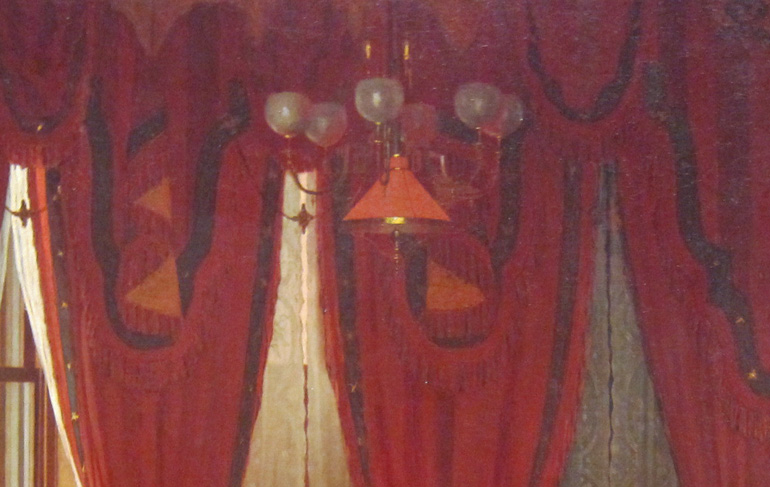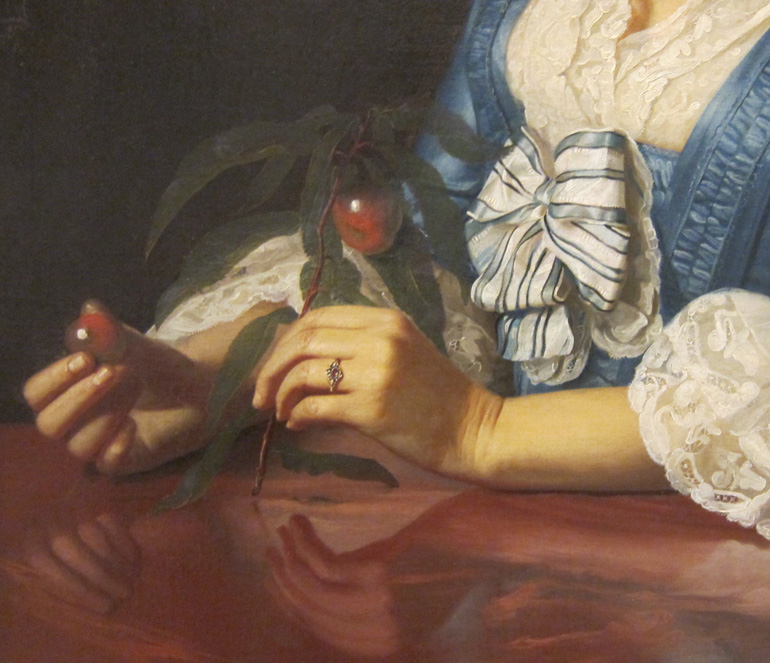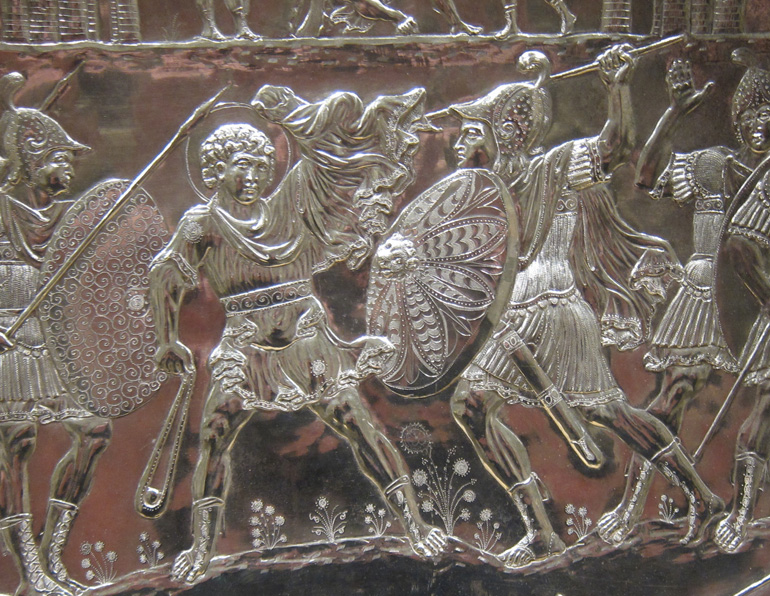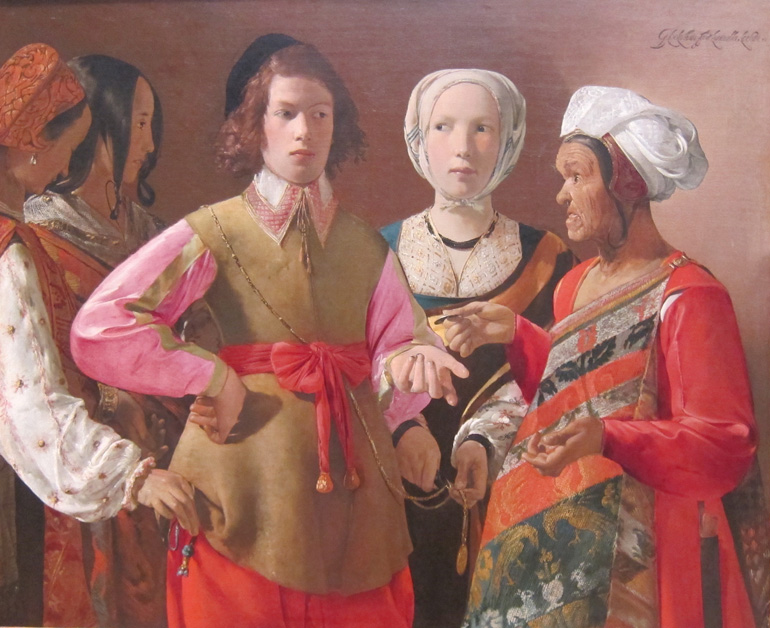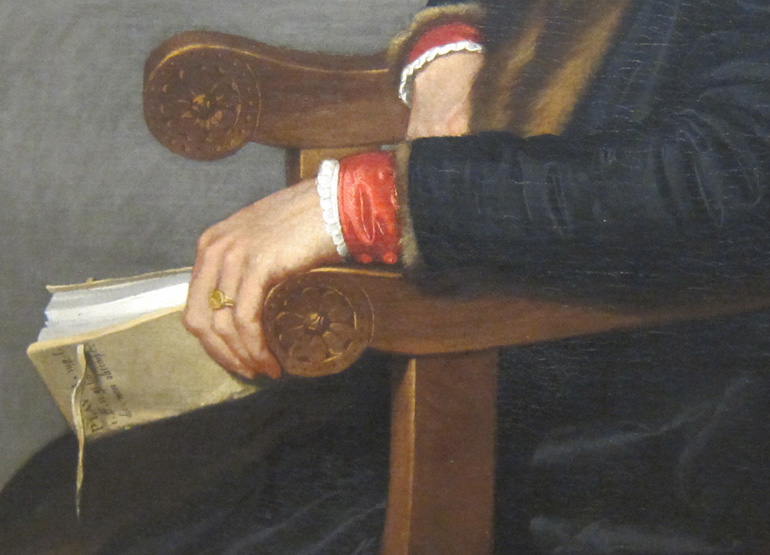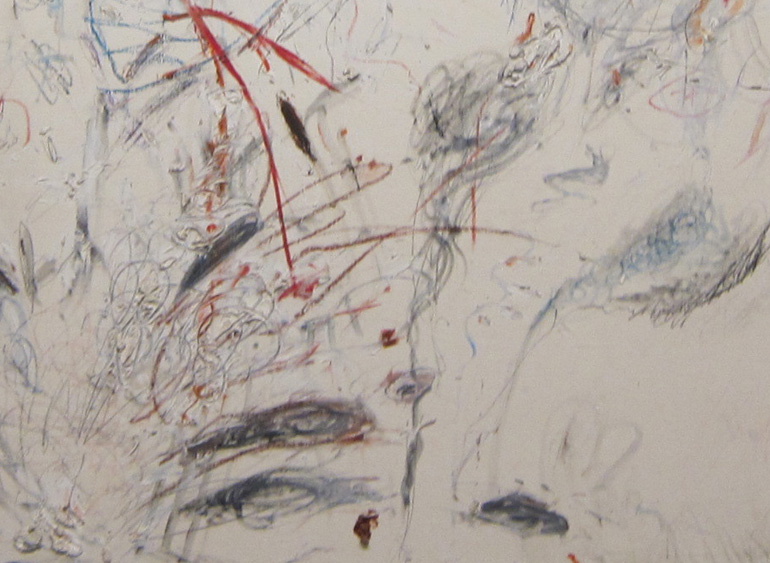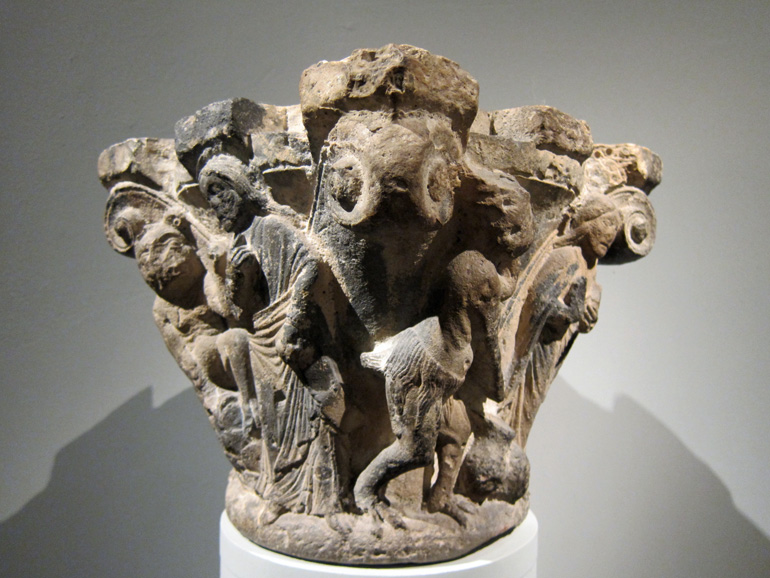Gotham Diary:
In the Blue Room
12 December 2013
Kathleen flew home from Phoenix yesterday, and there was rejoicing in the land. There was also sleeping-in.
Kathleen’s flight landed about an hour before I expected it. I was busy with CDs in the blue room. Yesterday marked an era: all of the CDs in my collection have been “processed” — a term that it makes me queasy to use so soon after reading Eichmann in Jerusalem. The jewel boxes have been discarded; the discs slipped into labeled sleeves, and the associated paperwork (booklets and such) arranged just so about each of them, and all are somewhere more or less appropriate in the filing system. The filing system is not as coherent as it might be, largely because I altered the “process” quite a bit in the early days of organizing the library in a way that would take up less space, but clearing up the filing inconsistencies is the only job that remains.
In this prolonged tear through the project, I came across a lot of music that I haven’t heard in five or six years. The only time I play a CD these days is when it’s new. I load it onto iTunes right away, and, from there, sometimes, onto playlists. It’s the playlists that I listen to. So, if the music isn’t iTunes, I haven’t heard it in a while. (The first playlist dates to September 2008.) And, now that I can breathe — now that there aren’t any stacks of jewel boxes tottering accusingly on my desk, in my closets, or anywhere else — I can see what I have, especially among the odd labels.
I’ve wondered a lot, lately, how different my life would have been had I studied library science. Any at all? It seems, rather, that the organization of a small collection of items — and any collection that can be housed in an apartment is small, no matter whether three or six thousand books are involved — is a terribly personal matter. I’m the only user, after all. I don’t aim to be arcane; I daresay anyone who had the run of the place would figure it all out in a month or less (and learn a lot about me). But as I’ve got older there has been a shift. I used to organize things in a way that made sense. Now I have a different objective: I want to suit myself. Yes, the history books are in one book case, and the novels in another. But I do seem to understand myself a lot better than I know what makes sense in some abstract way. I have a lot of books that don’t lend themselves to glib classification. Biographies of great composers, for example — music? or biography? At the moment, they’re in music, just as political biographies are in history. The biography section, such as it is, is reserved for books about writers. It stands alongside all the other books — and sometimes, I think that this is the heart of the library — that could be classified as non-fiction literature. What it comes down to is that the reallocation of a shelf or two of books is indeed, as someone (Borges?) once put it, a form of literary criticism, and I believe that, in my case anyway, this criticism is progressive, that I’m getting better at it, that I’m learning what literature is. My bookshelves are the essay in which I express what I’ve learned. So I do wonder what I should have learned from professional study.
I rarely mention it, but managing my library is made considerably more difficult than it might be by my insistence that all these books and bookcases be presentable. A very this-worldly thinker, I cannot tolerate heaps and piles and stacks of things. The blue room must masquerade at all times as a gentleman’s sitting room.
***
Which it most certainly did not for most of this week. Oh, my dear (to quote Mrs Grimmer), it was a fright. There was folded laundry everywhere, and a litter of scraps on the writing table, not to mention that final stack of CDs — one of which, a recording of Cherubini’s Missa Solemnis, seems to have gone missing when an inadvertent armswing sent the stack flying. Now there’s just an overflowing basket of Reviews of Books, copies of The Nation, and other mail. No, now that I look more closely, there’s also wire-mesh thingy that is wildly overstuffed with papers to be acted upon in some way or other (not bills!). I know how I’m going to deal with these disorderly remains. I’ve just called the Video Room and asked them to send over a copy of Now You See Me. This was the feature on the plane flying home from San Francisco, as I could tell from occasional glances at the screen, but I was busy with The Golden Bowl. I expect that it’s a not-very good movie with a very good cast. I’ll put it on to ease the drudgery of playing Russian clerk.
***
I’m in the middle of so many books at the moment that a charge of ADD could fairly be made against me. But two books in the rear-foreground are related in a highly piquant compare-and-contrast way. One is Neil Harris’s book about Carter Brown and the National Gallery, Capital Culture, that I mentioned the other day. It is scholarly and dutiful. By contrast, Robert Edsel’s Monuments Men is hard-charging and, in a way that seems to appeals to most male readers of history (ie, military history of the you-are-there stripe), artlessly complicated. Monuments Men has been adapted for film and will be released early next year, with George Clooney directing as well as playing a leading role. The leading role, I gather, belongs to Matt Damon, who plays James Rorimer. I have to stop when I say that, because, to me, “James Rorimer” is the author of the guide to the Cloisters that I grew up with, and they are one and the same man. Much as I admire Matt Damon, I can’t quite see him at the Cloisters, not yet. It’s just as hard to imagine, though, that the movie won’t be a hit, at least among people who liked The American, and I hope that the good folks at the Museum are planning some kind of tie-in — surely this is the time to name something after Rorimer, who was also a Director of the Museum, with a benefit dinner attended by Mr Damon.
(One link between these two books is that John Carter Brown, the gallery director’s father, served on the Roberts Commission, which oversaw the Monuments, Fine Arts, and Archives section of the Allied recovery of Europe after 1944. Another one is the business — and recklessness — of moving artworks around.)
But the book in the near-foreground is Michael Anesko’s Monopolizing the Master: Henry James and the Politics of Modern Literary Scholarship. The subtitle makes the book sound deadly, I know, but fear not: this is one delicious read. Serious but provocative, Anesko’s book is a giant bon-bon, a guilty-pleasure glance at high-minded people behaving, er, not so highly. Beginning with the Master himself, who rewrote William James’s letters and then destroyed the originals! All this is a mere warm-up for the exposé of Leon Edel as a mediocre opportunist whose “skill” consisted in missing much that is important (ambiguous, queer) in James’s writing. Anesko reminds us that the James family fortune was rooted in real property, and the Jameses seem to have little trouble regarding literary output as a kind of fruitful acreage, to be husbanded with assiduity. I’ve only just begun the second chapter, and already the temptation to drop everything else is very strong. Anesko can’t be charged with imitating the voice of Henry James, but he echoes its modulations — certainly more than does Colm TóibÃn. who, by the way, isn’t even mentioned in the index! Here is Anesko on William James’s well-known remark about his brother’s nationality.
Though James obviously prided himself on his deliberate cosmopolitanism, even members of his own family sometimes wondered about the cost entailed by cultivating it. William most famously addressed this when he described his younger brother (in a letter to their sisterr, Alice) as only superficially Anglicized, despite “all the accretions” from his years of living in London. “His anglicisms are but ‘protective resemblances,’ William pithily observed. “[H]e’s really, I won’t say a yankee, but a native of the James family, and has no other country.” If citizenship in that country conveyed extraordinary privileges, it also imposed peculiar defensive obligations: and all the Jameses seem to have understood and accepted the need to shield the family and its sometimes vulnerable members from critical scrutiny.
That “that” sets the very cadence of James.

